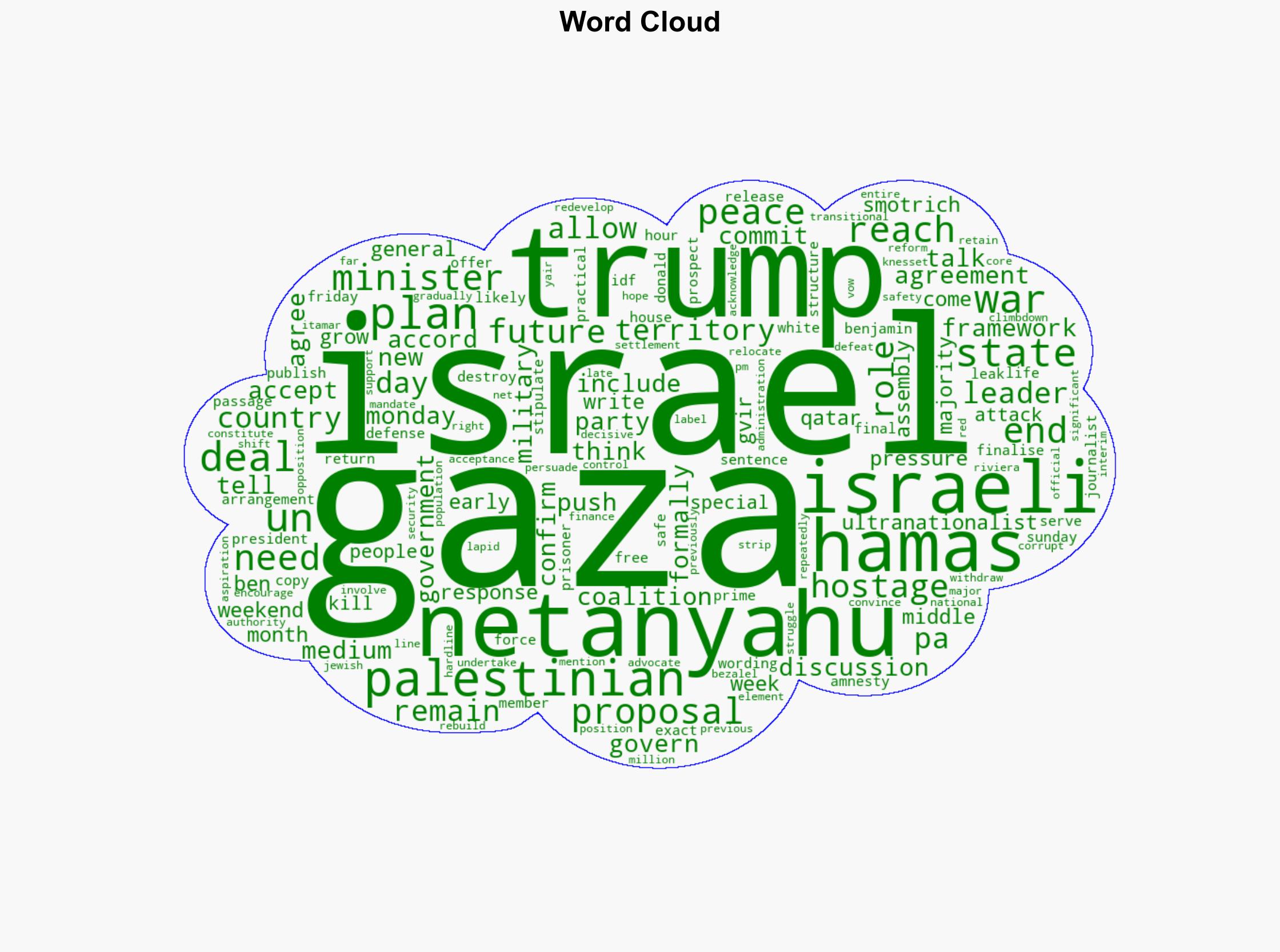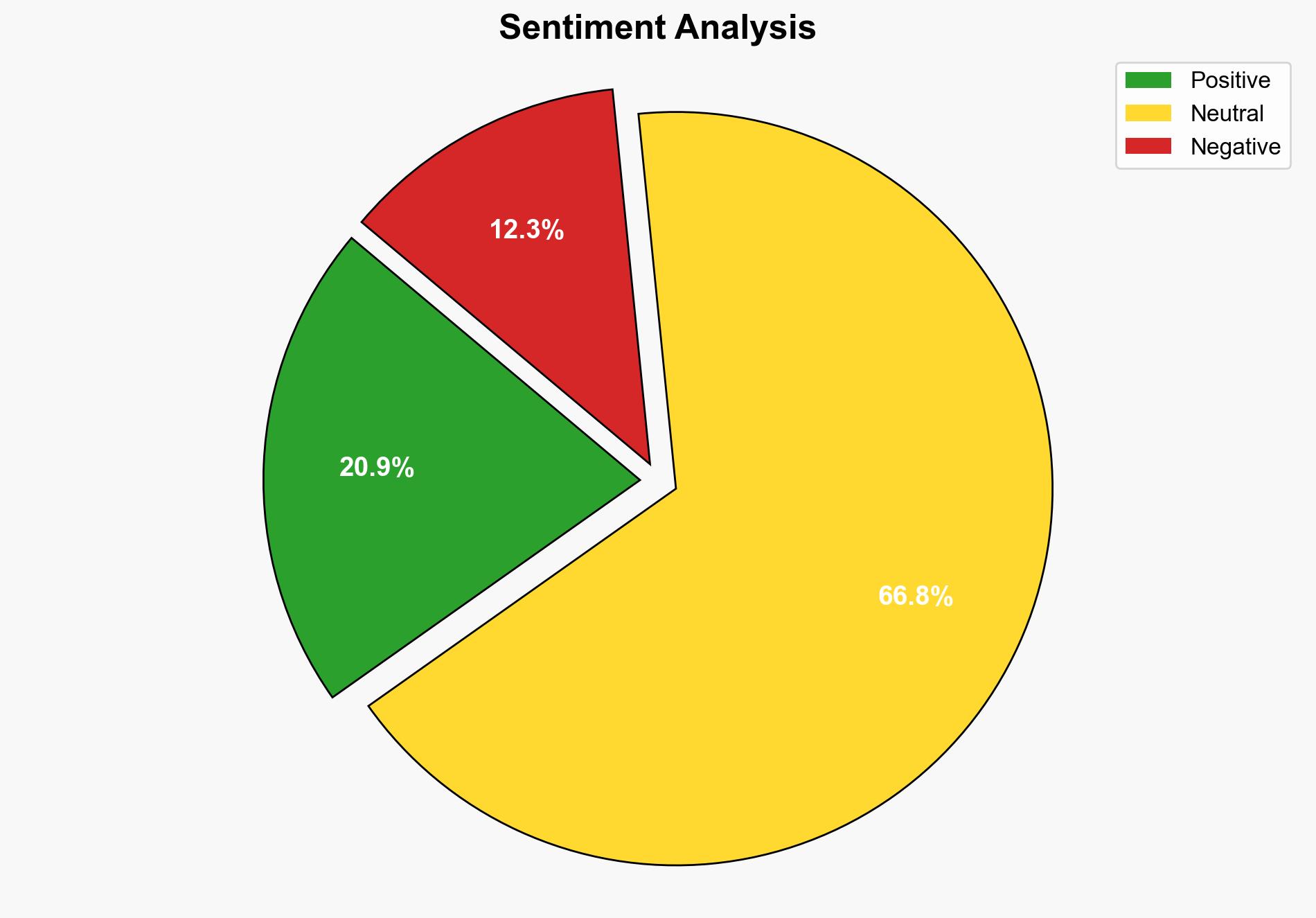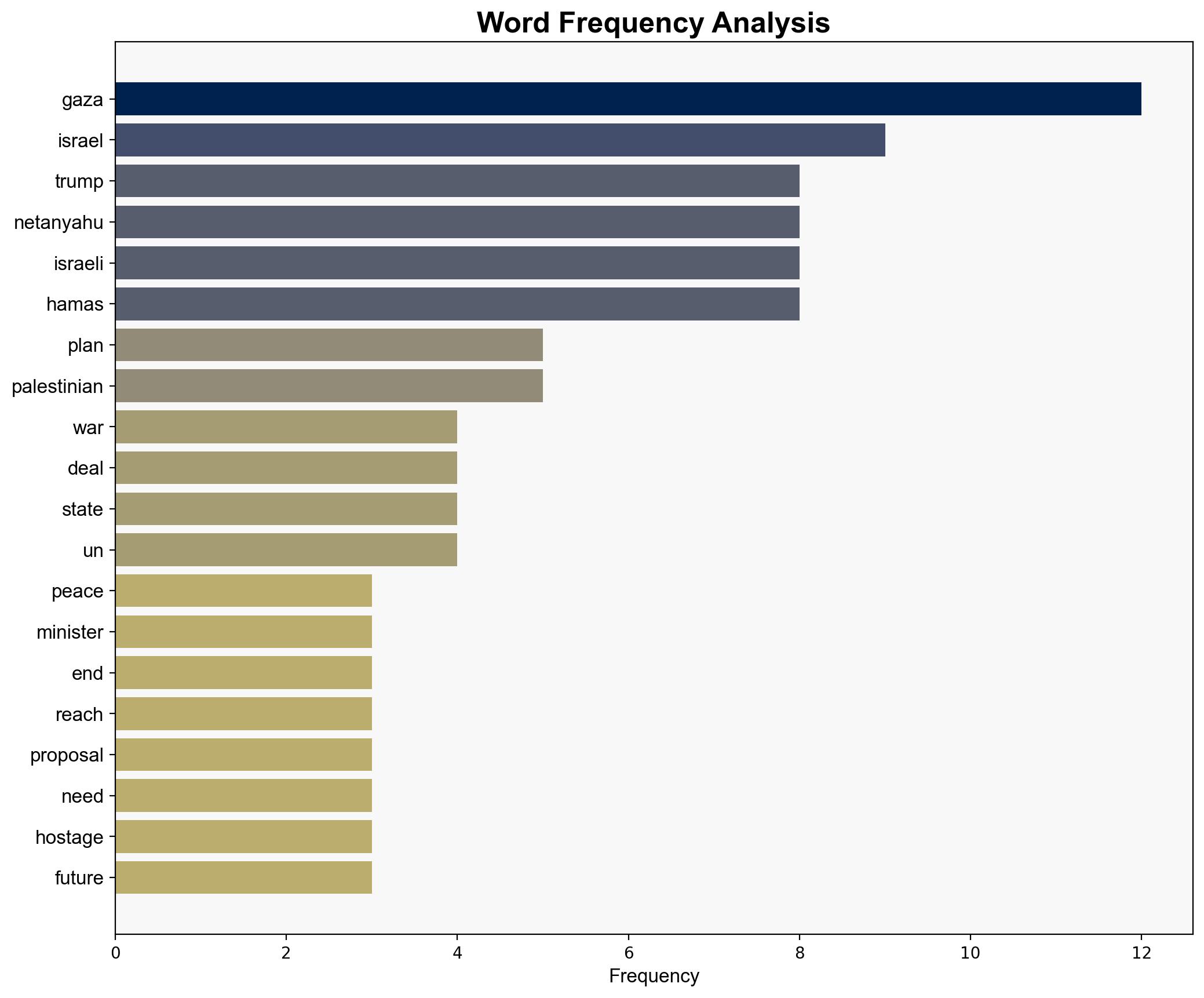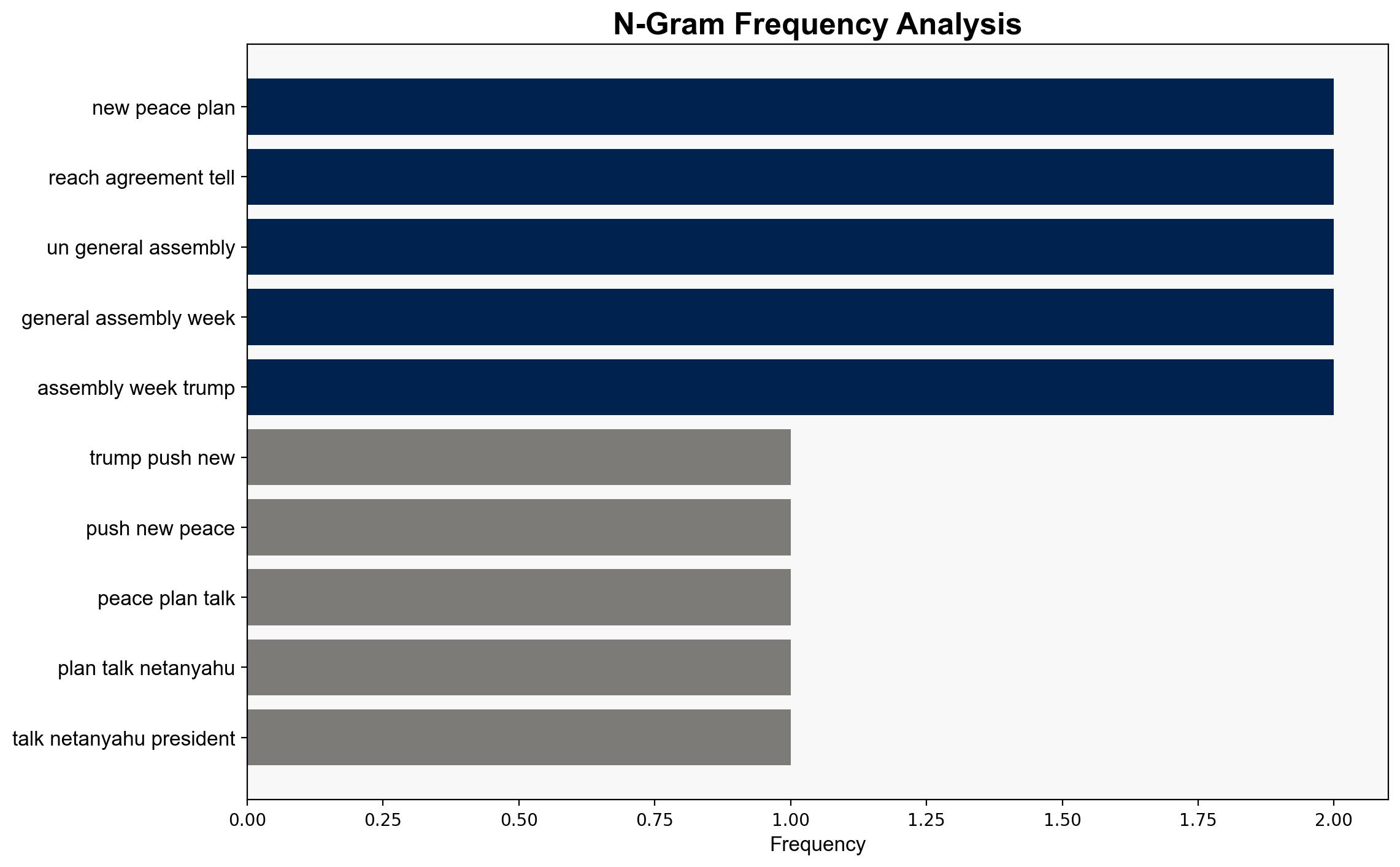Trump to push new peace plan in talks with Netanyahu – BBC News
Published on: 2025-09-29
Intelligence Report: Trump to push new peace plan in talks with Netanyahu – BBC News
1. BLUF (Bottom Line Up Front)
The most supported hypothesis is that the proposed peace plan is a strategic move by Trump to gain diplomatic leverage in the Middle East, with a moderate confidence level. The plan’s acceptance is uncertain due to internal Israeli political dynamics and skepticism from Hamas. Recommended action: Engage in diplomatic dialogue with key stakeholders to assess their positions and readiness to negotiate, while preparing contingency plans for potential escalation.
2. Competing Hypotheses
1. **Hypothesis A**: The peace plan is a genuine effort by Trump to stabilize the region and achieve a historic agreement, leveraging his influence to bring both Israeli and Palestinian parties to the table.
– **Supporting Evidence**: The plan includes significant concessions from both sides, such as the release of hostages and prisoners, and a transitional government in Gaza.
– **Contradictory Evidence**: Strong opposition from Israeli ultranationalists and skepticism from Hamas about the plan’s sincerity.
2. **Hypothesis B**: The peace plan is primarily a political maneuver by Trump to bolster his international standing and distract from domestic issues, with limited expectation of actual implementation.
– **Supporting Evidence**: Trump’s impatience with Israeli leaders and the timing of the plan amidst global pressure suggest a focus on optics rather than substance.
– **Contradictory Evidence**: The involvement of multiple Middle Eastern countries and the detailed nature of the plan indicate a serious diplomatic effort.
3. Key Assumptions and Red Flags
– **Assumptions**: The plan assumes that both Israeli and Palestinian leaderships are willing to compromise on long-standing issues. It also assumes that external pressures will lead to a breakthrough.
– **Red Flags**: The lack of explicit support from key Israeli coalition members and the absence of a clear stance from Hamas raise questions about the plan’s viability. The potential for deception exists if parties are using negotiations to buy time or shift blame.
4. Implications and Strategic Risks
– **Geopolitical Risks**: Failure to reach an agreement could lead to renewed hostilities, further destabilizing the region. Successful negotiations might shift power dynamics, affecting alliances.
– **Economic Risks**: Prolonged conflict could disrupt regional trade and investment, impacting global markets.
– **Psychological Risks**: Public opinion in Israel and Palestine could harden against compromise if negotiations fail, increasing radicalization.
5. Recommendations and Outlook
- **Mitigate Risks**: Establish back-channel communications to gauge true intentions of involved parties. Prepare for potential escalation by strengthening regional alliances.
- **Exploit Opportunities**: Use the peace plan as a platform to engage other regional powers in dialogue, potentially broadening the scope of negotiations.
- **Scenario Projections**:
– **Best Case**: Successful agreement leads to a lasting ceasefire and improved relations.
– **Worst Case**: Breakdown in talks results in intensified conflict and regional instability.
– **Most Likely**: Partial progress with continued negotiations, but no immediate resolution.
6. Key Individuals and Entities
– Donald Trump
– Benjamin Netanyahu
– Bezalel Smotrich
– Itamar Ben Gvir
– Yair Lapid
– Hamas leadership
7. Thematic Tags
national security threats, geopolitical strategy, Middle East peace process, diplomatic negotiations




